A Beginner's Guide to KEIRIN
A tight pack of cyclists teaming together in single file is called a 'line'.
Review the Lines is key to understanding KEIRIN races.
Forming lines
KEIRIN cyclists team with each other to form lines that maximize their performance and chances at victory.
Lines are tailored to the performance characteristics of each cyclist.
Fierce line battles
It's more difficult to overtake multiple cyclists in a line than to overtake a single cyclist, so another reason KEIRIN cyclists form lines is to make it harder to be overtaken by another line.
Up until the final moments of a race, lines of cyclists battle fiercely against one another. The final moments of a race come down to a battle between individual cyclists. The lines of cyclists in KEIRIN give the sport subtlety, making it compelling viewing from start to finish.
How lines are formed
The strongest lines are formed by cyclists who often ride together, know each other's habits and performance characteristics, and can give each other support. Lines therefore usually consist of closely acquainted cyclists registered in areas near each other.

There are an unlimited number of ways in which races can unfold, but races generally fall into four types:
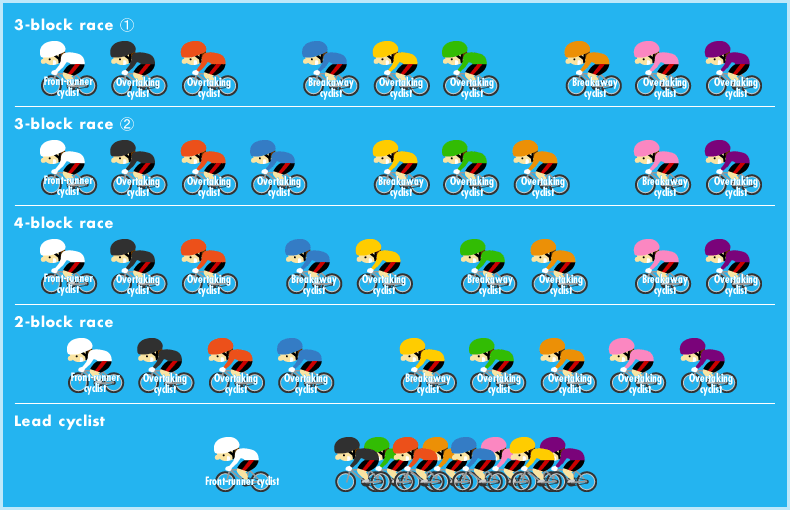
The second cyclist in a line plays an important role.
This cyclist protects the rear of the leader/breakaway-type cyclist in front, and supports the battle for position against other lines.
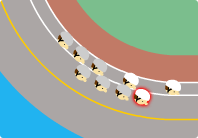 Blocking
Blocking
The second cyclist in the line blocks any cyclists attempting to move up from the rear.
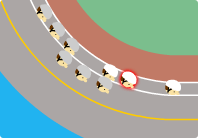 Widening the gap
Widening the gap
Widening the gap to the leader/breakaway cyclist increases the distance the other cyclists need to cover to catch up.
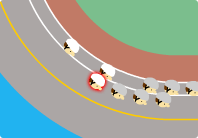 Switching places
Switching places
When one line overtakes or breaks away from another, a non-leading cyclist in the lagging line chases the leading line.
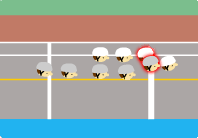 Scrambling
Scrambling
Cyclists battling closely against each other for the position directly behind the lead cyclist. Can result in violent collisions.
